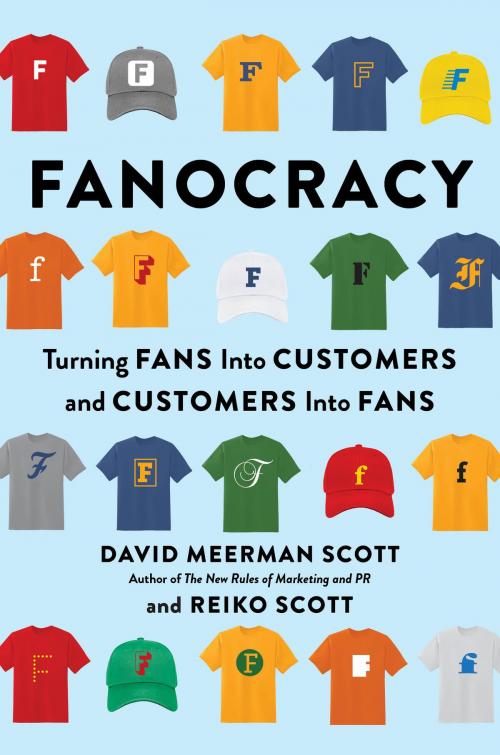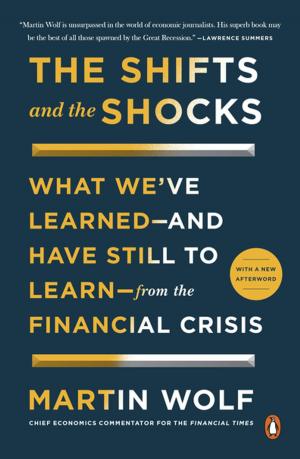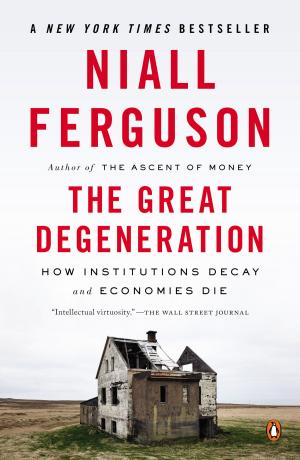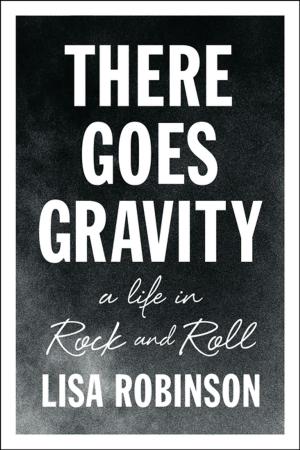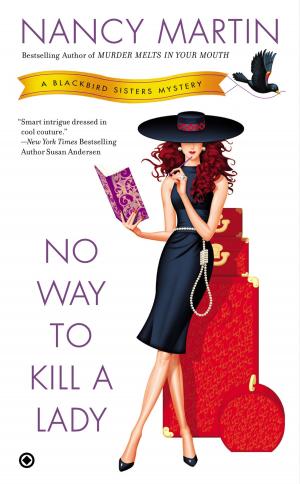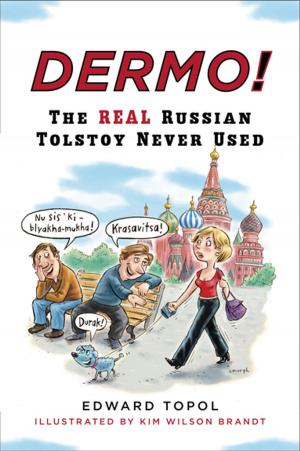Fanocracy
Turning Fans into Customers and Customers into Fans
Business & Finance, Career Planning & Job Hunting, Entrepreneurship, Entrepreneurship & Small Business, Marketing & Sales| Author: | David Meerman Scott, Reiko Scott | ISBN: | 9780593084014 |
| Publisher: | Penguin Publishing Group | Publication: | January 7, 2020 |
| Imprint: | Portfolio | Language: | English |
| Author: | David Meerman Scott, Reiko Scott |
| ISBN: | 9780593084014 |
| Publisher: | Penguin Publishing Group |
| Publication: | January 7, 2020 |
| Imprint: | Portfolio |
| Language: | English |
Fandom isn't just for actors, athletes, musicians, and authors anymore. It can be rocket fuel for any business or nonprofit that chooses to focus on inspiring and nurturing true fans.
The most powerful marketing force in the world isn't social media, email blasts, search ads, or even those 15 second commercials before a YouTube video. It's fandom.
David Meerman Scott and his daughter Reiko are very different - one is a baby boomer business strategist, the other a millennial medical student. But both noticed that the kind of enthusiasm they once reserved for pleasures like the Grateful Dead (David) and Harry Potter (Reiko) now extends to all sorts of companies and organizations. So they teamed up to explore a big question: Why do some brands, even in supposedly boring categories like car insurance and enterprise software, attract not just customers but raving fans?
The key is creating what they call a "fanocracy" - an organization that puts the needs and wishes of fans ahead of every other priority. It can be scary, at first, to focus on intangibles like community, generosity, and fun, rather than squeezing every penny from each interaction. But those who apply the strategies in Fanocracy are more likely to dominate their categories. And beyond the financial benefits, fanocracies spread more joy and inspiration to the world at large.
Fanocracy features a wide range of examples, including...
* The surfboard maker that invites customers into its workshop, where it reveals its proprietary processes.
* The underwear startup that's "empowering people to live a life of boldness." (Yes, underwear.)
* The teenager who turned eggs (the ultimate commodity) into a unique and delightful brand.
* The nonprofit that works closely with musicians to encourage their fans to register and vote.
* The battery company that wins loyalty by giving away its products during natural disasters.<
Fandom isn't just for actors, athletes, musicians, and authors anymore. It can be rocket fuel for any business or nonprofit that chooses to focus on inspiring and nurturing true fans.
The most powerful marketing force in the world isn't social media, email blasts, search ads, or even those 15 second commercials before a YouTube video. It's fandom.
David Meerman Scott and his daughter Reiko are very different - one is a baby boomer business strategist, the other a millennial medical student. But both noticed that the kind of enthusiasm they once reserved for pleasures like the Grateful Dead (David) and Harry Potter (Reiko) now extends to all sorts of companies and organizations. So they teamed up to explore a big question: Why do some brands, even in supposedly boring categories like car insurance and enterprise software, attract not just customers but raving fans?
The key is creating what they call a "fanocracy" - an organization that puts the needs and wishes of fans ahead of every other priority. It can be scary, at first, to focus on intangibles like community, generosity, and fun, rather than squeezing every penny from each interaction. But those who apply the strategies in Fanocracy are more likely to dominate their categories. And beyond the financial benefits, fanocracies spread more joy and inspiration to the world at large.
Fanocracy features a wide range of examples, including...
* The surfboard maker that invites customers into its workshop, where it reveals its proprietary processes.
* The underwear startup that's "empowering people to live a life of boldness." (Yes, underwear.)
* The teenager who turned eggs (the ultimate commodity) into a unique and delightful brand.
* The nonprofit that works closely with musicians to encourage their fans to register and vote.
* The battery company that wins loyalty by giving away its products during natural disasters.<
